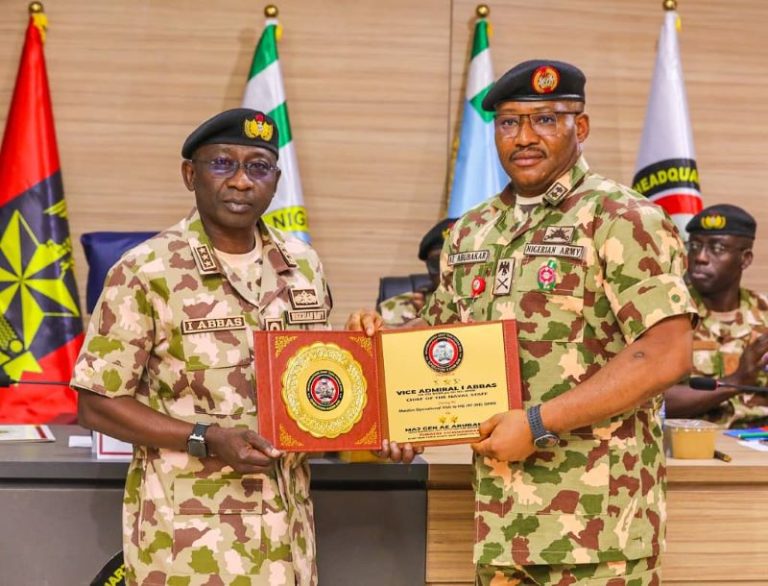The Director-General of the Federal Capital Territory Emergency Management Agency (FEMA) Mr. Abbas Garba Idriss in this exclusive interview with PEOPLE & POWER Magazine Editor-in-Chief; Ikechi Enwereji spoke extensively on flooding control and related issues. Excerpts:
The global climate change forecast gives worrisome statistics in terms of torrential rains and associated flooding. What strategy is your Agency adopting to combat this ugly situation?
I am happy you said it is a global phenomenon. Flooding has indeed become a global issue because it happens everywhere in the world due to climate change, which is necessitated by global warming. So, it is not different with Nigeria. We have seen a heavy downpour as predicted by Nigerian Meteorological Agency (NIMET) in its own climate prediction that we were going to have normal and above normal rainfall. What it means is that it is going to be heavy and it is going to be shorter within a short period of time. The climate is going to be such that the rain we will have is going to be very much more than expected; we could have in one hour rain that is supposed to come down in a week. So you can imagine how voluminous it will be. If it comes and you found out that there are no engineering infrastructures available, definitely there is going to be flooding and that is what we are experiencing.
Prior to this prediction, we have already prepared as an agency to ensure that all these would be taken care of; and how do we do that? We review our past experience, what happened last year, at what location, the cost of flooding in that location and when the prediction comes out we look at it, having corrected the infractions around those areas with the stakeholders, we now look at the predictions and say wow. Now, FCT’s two area councils are on the red flag, that means we are going to have more flooding than ever. So we still go round and ensure that all those areas that have anything that can cause flooding is taken care of.
I am sure you have witnessed some demolitions going on; and also some deserting of drainages especially along the Airport Road where we had a surprise of flash-flooding around Lugbe recently? So a lot of things are going on. In fact, the administration has involved one of the construction companies to ensure that everything is done. And this is what is happening largely all over the city and FCT to ensure that we do not leave any stone unturned. We are doing everything possible to ensure that we do not have much flood; we cannot stop the flood but we can mitigate it and ensure that we allow water to have free access.
 In the area of public enlightenment, how much has been done to sensitize people about the flashpoints you talked about?
In the area of public enlightenment, how much has been done to sensitize people about the flashpoints you talked about?
So much! We can beat our chest that we have done a lot lately and we are still doing so much of enlightenment. During the dry season, we do not relent; we go out and enlighten the public. With the COVID-19 in existence, we have to adopt a strategy. No matter how effective you are, if you do not have a strategy you are bound to fail. So we adopted a lot of strategies and one of such is that, since we cannot bring the people together in a town hall meeting like before, we have to use the local town criers and then also use our local volunteers and vanguard to communicate the message to the community.
Another strategy we took is that we engaged the communities and everybody to own up to the risk available in their areas having done what is called hazard mapping. We have mapped up all the hazards in FCT, identified also the capability of the communities and so we now allowed the communities to own up their hazards. How they own up is to know what is happening around them and then how to cope with that situation. So we are giving them a lot of enlightenment and we are running a lot of jingles in five different languages, Hausa, English, Gbagi, Igbo and Yoruba. Apart from these ones we are still using social media to communicate; we have an app that speaks to the people. If you go to our website you can download our app and speak to us. Also, we are using a lot of handbills and posters to educate the public.
Still, on flooding, many buildings are erected on waterways and most worrisome is that most of these structures have authorized building plans and also dumping of refuge on unauthorized places. What is your agency doing in collaboration with other agencies to stop this trend?
That is what I told you that we are pulling down those buildings; you will agree with me that over 300 buildings were removed recently. You are aware that one of you is heading a task team that is going out to demolish all those identified illegal structures. No matter what documents anyone has, if he builds on waterways we are going to remove it. Nobody will give anyone legal documents to build on waterways or flood plain areas.
Therefore, any structure built on a flood plain or blocks the waterway to conscript the waterway; definitely, we are going to remove it. The agencies responsible are there and they are removing it every day.
On the dumping of refuge, it is also another challenge that we are having but this one is happening with the satellite towns whereby they do not have the system of refuge collection and we are advocating that whatever that is going on in the city should also happen in the satellite towns. Everybody must have a waste bin and then put their waste in the bin so that it can be evacuated just like what is happening in the city centre. But our main challenge is not even those householders that are dumping the refuge but those people who are driving and throwing away rubbers, cans, bottles and so on. Collection of those wastes that goes and block the drainages and then we have a lot of problems; that is why you see water on the roads as you are driving. So this is a very major challenge; the relevant agencies are also working to ensure that that does not happen because they are now engaged. They go out especially to motor parks and sensitize people, that is facility maintenance as well as AAPB, they are working on that.
 Can you tell us more about what is being done with other stakeholders to make sure that these flood-prone areas have the right infrastructure to accommodate the type of water they receive?
Can you tell us more about what is being done with other stakeholders to make sure that these flood-prone areas have the right infrastructure to accommodate the type of water they receive?
You see, FCT is such a place that has been planned very well and each area has its own collection centres and each water channel is being targeted towards a particular river. So everything we are working together with all the stakeholders especially engineering services who are ensuring that all these areas that are prone to flooding are well taken care of and both conscripted culverts are expanded and all the engineering facilities are being put in place.
I want to assure you that FCT is not resting on this issue because we have collectively agreed with the stakeholders that we will do everything possible to ensure that the safety of lives and property of the residents of FCT is very paramount to us. So we are working on that.
Response to emergencies must have some encumbrances, what are the major challenges you had faced and are still facing?
Definitely, every agency is starved of funds; if we have funds we can be able to do a lot of things, buy a lot of equipment. What is happening in FEMA is also happening in any other agency elsewhere we are interfacing with. But that notwithstanding, what I always get consolation with, is that our stakeholders are able and very willing to do whatever we want to do. And the strength of any emergency management is the ability to really work with the stakeholders and we have that collaboration. We have that synergy with our stakeholders. So we are rest assured that whatever happens we should be able to really nip it in the bud and you will agree with me that those buildings we are collapsing, within few minutes we organize excavators, caterpillars and other things and start a rescue mission. That is to show our strength of collaboration with our stakeholders is yielding results. So we have no fear whatsoever; as I have always said. I do not need to have the entire wherewithal before I can operate. But we can rely on the strength of other agencies and ensure safety prevailed in the FCT.
 What can you say to FCT residents at this time, either by way of caution, warning or encouragement because in places like Lokogoma when it starts raining, people are relatively afraid to go out?
What can you say to FCT residents at this time, either by way of caution, warning or encouragement because in places like Lokogoma when it starts raining, people are relatively afraid to go out?
I want to reassure the FCT community that FEMA is really on top of the situation. When I mean FEMA, I mean FEMA and other stakeholders because we are not working alone. We are leaving no stone unturned in ensuring that safety is there. In fact, we are even coming up with a strategy that in each estate we want to engage them and also build their response plan and ensure that the estate is part and parcel of FEMA; to ensure that whatever happens in the estate, we are very close and then there would be ownership of those hazards in the estate so that we would be able to really handle the situation.
But, nevertheless, if there is any challenge we are always urging the public to call on us using our toll-free emergency number – 112 for a prompt response. We are committed to saving lives and property. Public safety is our main concern. I am sure the FCT residents are also helping us towards achieving those goals because the sensitization as it goes is really yielding results. And majorly, we are calling on all motorists that they should not drive on running water, we have warned severally and we are still warning that you cannot underestimate because flash flooding is very easy to build and what we are experiencing in the FCT is mostly flash flooding. You cannot think that the level of water is just one inch. If you enter before you say a word, it will build up to a larger proportion. We do not want people to be trapped because most of the deaths recorded in the past were a result of that negligence. People dropped in the running water and as a result, were carried away by the flood.
https://any.peopleandpowermag.com/fema-works-in-collaboration-with-other-agencies-to-achieve-results/




